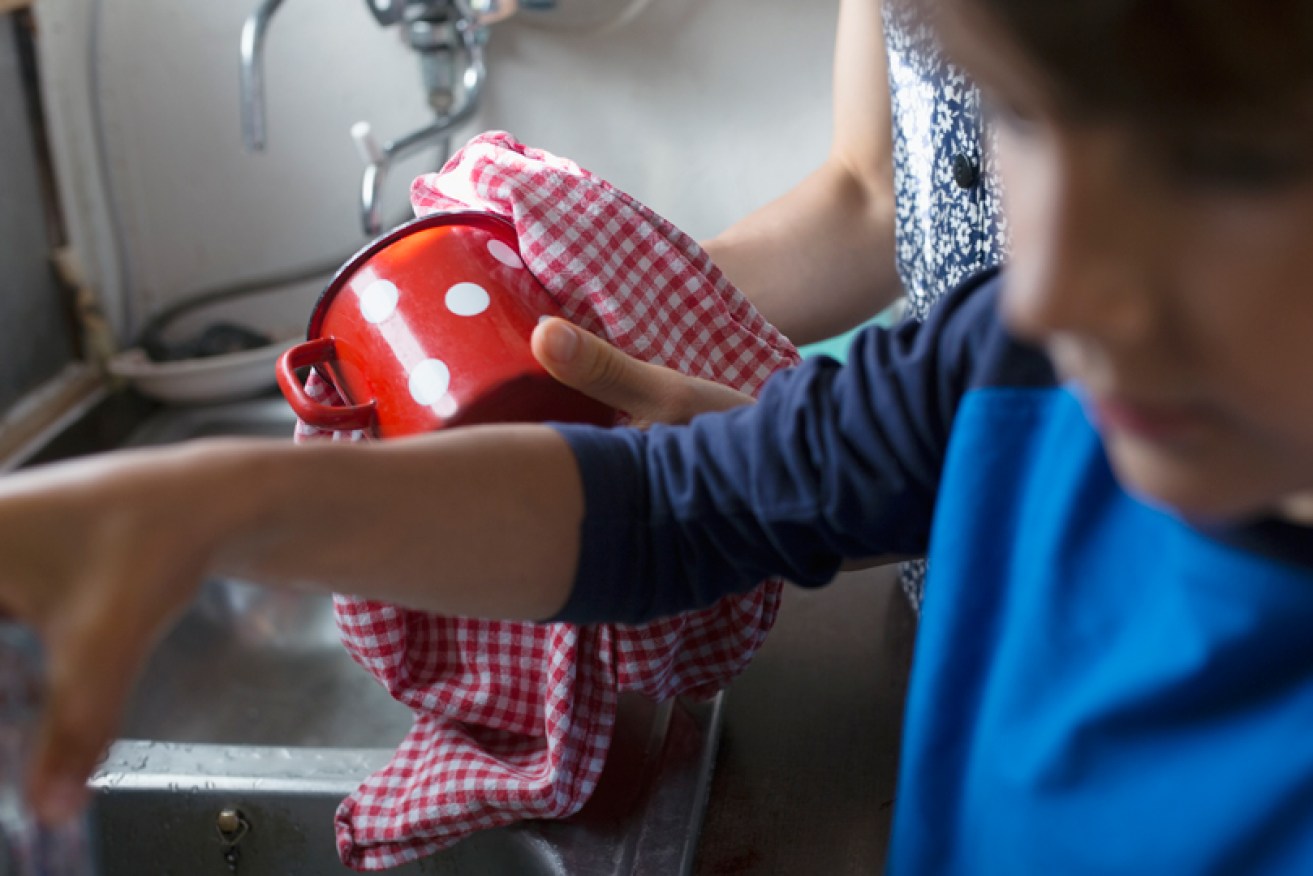How often you should wash your tea towels to avoid food poisoning


Re-using tea towels too much could increase your risk of getting food poisoning. Photo: Getty
The tea towel you used to dry the dishes last night is likely harbouring bacteria that could increase your risk of suffering a nasty case of food poisoning, according to a new study.
About half of tea towels used repeatedly over a month were found to be contaminated with bacteria, such as E. coli, a strain of bacteria that can cause severe food poisoning.
The research, presented at the annual American Society for Microbiology meeting at the University of Mauritius, said bacteria growth increased when a tea towel was used for multiple purposes such as drying hands and benchtops as well as the dishes.

Do you wash your tea towel every day? Experts suggest this may be a good habit. Photo: Getty
Bacteria were also found in higher volumes on tea towels in households with larger families and on damp tea towels used before they had adequately dried.
“The data indicated that unhygienic practices while handling [meats] could be common in the kitchen,” lead author Dr Susheela Biranjia-Hurdoyal said in a statement.
“Humid towels and multipurpose usage of kitchen towels should be discouraged. Bigger families with children and elderly members should be especially vigilant to hygiene in the kitchen.”
How often to wash your tea towel
Microbiology Professor Enzo Palombo, of Swinburne University, said Australians should wash their tea towels daily.
“This will reduce the opportunity for bacteria to grow to potentially dangerous levels,” he said.
“Anything that we handle or [that] comes in contact with food will become contaminated with bacteria. Hands and foods are not sterile.
“But it’s the number [of bacteria] that determines the risk.”
Staphylococcus or coliform bacteria were detected on more than one-third of the tea towels used in the study.
Staphylococcus (golden staph) can cause skin infections or more serious conditions like blood poisoning and meningitis, while coliform symptoms can range from stomach cramps to fever, pneumonia or respiratory illnesses.
Professor Palombo said moisture is a key factor that affects the growth of bacteria as they thrive in warm, moist environments.
“If the tea towels are damp, this increases the chance for growth but only if there are sufficient nutrients, like food residues,” he said.
Cathy Moir, a senior food microbiologist at CSIRO, said the same principles apply to kitchen scourers and sponges.
In fact, she said these household staples were probably “more susceptible” to bacteria growth because they are more often wet.
A 2011 study conducted by the National Sanitation Foundation International found that more than 75 per cent of dish sponges contained bacteria.
How to prevent germs spreading in the kitchen
Ms Moir told The New Daily there are a number of ways consumers can minimise the risks.
- Only use tea towels on clean, washed dishes.
- Allow tea towels to dry after use and before next use.
- Avoid using tea towels as a ‘hand towel’ after washing your hands or to dry benchtops – keep a separate towel in the kitchen for that purpose.
- Don’t use a damp tea towel to dry dishes.
- Avoid cross-contamination in the kitchen by keeping raw meats and eggs away from ready-to-eat foods, such as salads.
The researchers concluded that one way to prevent the spread of E. coli would be to replace tea towels use with disposable paper towels.
But Ms Moir warned that while paper towel could minimise the food poisoning risk, they are less environmentally friendly.
She said: “If people use tea towels appropriately in the kitchen then there will be a minimal food poisoning risk to the consumer”.








